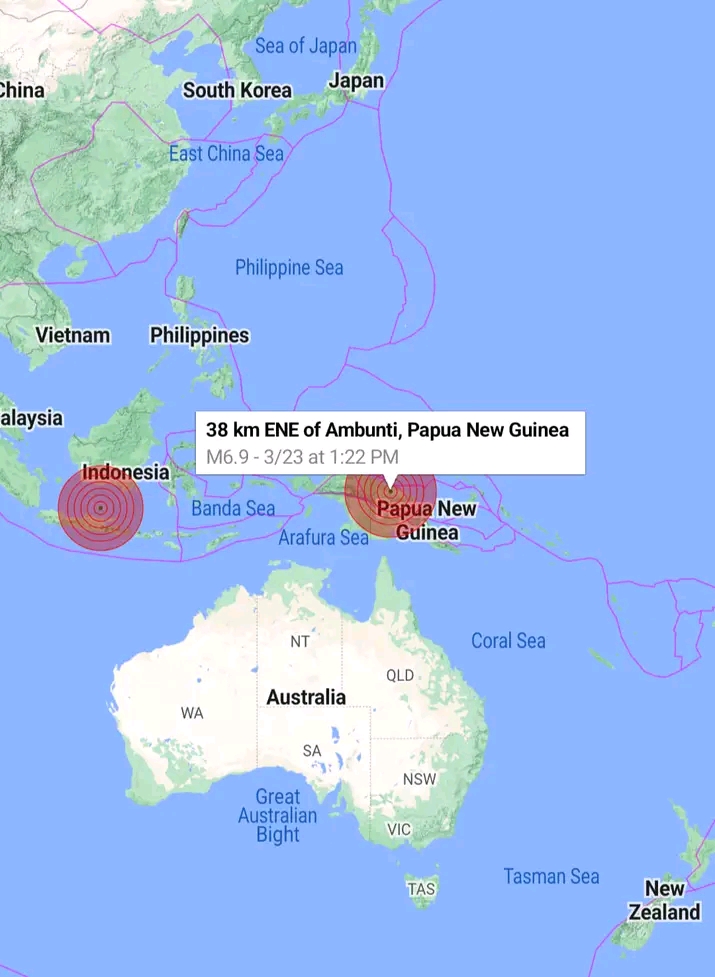Tragedy in Papua New Guinea: Earthquake Claims Lives, Scores of Homes Destroyed
Papua New Guinea experienced a horrifying natural disaster as a magnitude 6.9 earthquake hit early Sunday morning.
This seismic event, occurring amidst severe floods due to torrential rains, left a trail of destruction across numerous villages, especially those situated along the iconic Sepik River.
The quake resulted in at least five fatalities, with concerns that this number may rise as search and rescue operations continue in the hard-to-reach, jungle-covered areas. Moreover, the disaster led to the destruction of around 1,000 homes, leaving countless residents homeless and in dire need of assistance. The situation is particularly grim in East Sepik Province, where the earthquake’s impact was most severe, affecting the majority of its parts.
Photos emerging from the affected areas depict a heartbreaking scene of wooden homes with thatched roofs, now collapsed into the floodwaters, and a critical bridge in Wewak, the provincial capital, severely damaged. The immediate needs for the affected communities include medical supplies, clean drinking water, and temporary shelters.
In response to the crisis and the series of natural disasters that have recently struck the country, including earlier floods and landslides that claimed at least 23 lives in the Highlands region, Prime Minister James Marape has announced a US$130 million emergency funding package. This fund aims to support recovery efforts and address the urgent needs of the disaster-stricken areas.
Papua New Guinea’s geographic position on the seismic “Ring of Fire” makes it susceptible to earthquakes. However, its rugged terrain and the fact that many of its nine million inhabitants live in remote areas complicate rescue and relief efforts. This recent earthquake underscores the challenges the country faces in terms of natural disasters, highlighting the urgent need for improved disaster preparedness and climate resilience.
Ranked as the 16th most at-risk country to climate change and natural hazards, Papua New Guinea’s recent plight emphasizes the global need for collective action on climate change mitigation and disaster risk reduction.
